Are you thinking about doing ANOTHER diet? This article goes over the 5 most important nutrition questions to ask yourself before starting another one. What you’ll uncover might surprise you.
To listen to this episode, check out the podcast:
5 Nutrition Questions to Ask Before a New Diet
Try googling “do diets work?”. You’ll likely find that the answer is “no”. In fact, Google AI shares: “While dieting can lead to short-term weight loss, it’s generally not effective for long-term weight management. Studies show that a large percentage of dieters regain the lost weight within a few years.”
There are plentiful studies that have the same results: most people that engage in calorie restriction regain their weight after a certain amount of time. In other words, the diet you might want to embark on actually won’t work. It’s not personal, it’s the way most diets are set-up: impossibly restrictive, low in calories, and low in macro and micro nutrients.
What’s important, is shifting yout perspective to how you define “diet”. Simply put, “diet” refers to a pattern of eating. However, most people engage with the term as a defined form or brand of calorie restriction, whether it be keto, fasting for fat loss or the atkins diet, etc.
As you go through the 5 questions to ask yourself below, you’ll notice longevity and sustainability is the goal of a truly successful diet. This means that you’ll see long-term results from a healthy pattern of eating that you’re able to stick to for the long-term.
What’s My “Why” for Wanting to Diet?
It’s time to get real with your “why”. Are you wanting to diet as punishment and/or to look a certain way? Dieting to look better is a slippery slope that can lead you into treacherous waters of cutting out entire food groups or eating at a major deficit. If you are trying to improve your body composition, strength training and eating at a slight deficit (a maximum of 300 calories less than your maintenance calories per day for no longer than 3 months) can help you get there. Remember, slow, steady, and easy changes always work better than fasting or starving yourself to drop 5 pounds in two weeks. Which is why it’s not recommended to focus solely on progress pictures or measurements.
Instead, focus on incorporating eating habits that improve your health and lifestyle. Is there a health condition you’re trying to manage? Or you’re seeking more structure within your lifestyle? Typically, when your motivation for starting a new diet stems from a “why” that is based on improving your overall health, you’ll have a better chance of incorporating new eating habits that are healthy and sustainable.
Is This Diet Sustainable Long-Term?
Before starting a new diet, it’s important to consider how sustainable the eating pattern will be. Quick-fix diets and fad diets often involve cutting out major food groups and can lead to nutrient deficiencies. While this might seem harmless if done short-term, depriving your body of essential nutrients can have serious consequences, like disrupting your natural hunger and fullness cues and potentially increasing the risk of developing disordered eating patterns. These effects can take months or even years to recover from.
Here are diet sustainability red flags:
- Eliminating entire food groups
- Tracking every single bite of food
- Socially isolating to stay on track
- Feeling guilty when you diverge from your diet plan
Choosing a diet that you can see yourself maintaining a year and beyond is far more sustainable. This requires you to be not only realistic with yourself, but to prioritize what makes the most sense.
Here are the signs of sustainable diet:
- It contains foods you enjoy
- You don’t dread meals or feel deprived
- You’re not constantly hungry or have low energy
- Your cravings are manageable
- You can imagine doing it a year from now
Will I Be Getting Enough Nutrients?
Choosing a diet that lacks essential nutrients can lead to fatigue, low energy, and mood swings. Most fad diets eliminate entire food groups, which can deprive your body of important vitamins and minerals. It’s crucial to choose an eating plan that includes a balance of all macronutrients—protein, fats, and carbohydrates—as well as sufficient micronutrients. Knowing how your macros helps you to get a good sense of what this means. For example, carbohydrates are a healthy and important energy source, especially for active people. If you are working out or active, you need carbs. If you choose to cut out bread, make sure to get carbohydrates from whole food sources like fruits, vegetables, rice, or sweet potatoes. Aim for balanced, colorful meals with a variety of fruits and vegetables, healthy fats, and high-quality carbs. On the other hand, reducing packaged and ultra-processed foods is often beneficial, as these tend to be low in nutrients and high in refined carbs, sodium, and additives.
How Will This Diet Affect My Relationship with Food?
Whatever diet you choose should give you autonomy and control over your food choices. The goal is to eat food that is both nourishing and pleasant. And, most importantly, the food choices you make should not be a source of stress or guilt. This means incorporating flexibility to enjoy going out for meals with friends and partaking in eating the foods that you love during celebrations and the holidays.
Most importantly, your relationship with food should honor listening to your body and the relationship you have with it. Understanding and knowing your hunger cues vs cravings, or eating out of boredom is a part of this.
Some red flags around choosing a diet that might harm your relationship with food include:
- Labeling foods as good and bad
- Feeling anxious in social situations with food
- Ignoring your body to hit your prescribed calories and macros (especially around period, when you need more calories)
- Binging after long periods of restriction
Am I Choosing This Diet for Me—or for Someone Else?
This question ties into your “why.” When making any lifestyle change, including starting a new diet, it’s important that your motivation reflects your own goals, not someone else’s expectations or pressure to look a certain way (whether internal or external). Always prioritize your personal preferences and health needs over fleeting trends, and choose changes that feel empowering and sustainable. A helpful question to ask yourself is: “Would I still follow this way of eating if no one knew I was doing it, or if no one saw the results?”
When you incorporate eating habits that are structured around your body’s needs and health goals you have for yourself, you can start making changes from an empowered place that also has leniency for life.
Do you want to learn more about how to make a good diet decision for yourself? Listen to episode 236 of the Stronger Than Your Boyfriend Podcast: Before You Start Another Diet: 5 Questions to Ask Yourself
Need help getting on track with the right diet? Sign up for 3 free weeks of nutrition guidance here!



